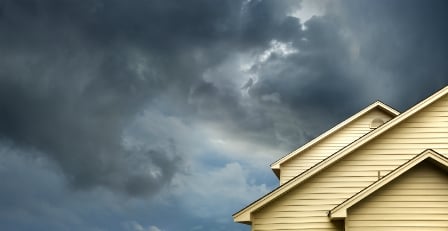

Climate change will increasingly make it difficult to insure properties, while the risks of rising sea levels will soon become a key consideration for people looking to buy a home, according to a climate-risks expert.
Karl Mallon, science and systems director at Climate Risk, said homeowners are currently left in the dark about the risks of flooding and rising water levels, with people getting “more consumer protection buying a bottle of shampoo” than when “buying a house.”
“No one is telling homeowners what they really need to know,” Mallon told ABC’s Four Corners. He said that properties in areas under threat from rising sea levels will become harder to sell as buyers become more aware of the effects of climate change, Domain reported.
“If you own a home in one of those areas and you try to sell it, you may find that the buyer is saying, ‘Well, I’m not going to be able to insure it,’ or, ‘It’s going to be very expensive,’ or, ‘I don’t want to buy a house that’s going to decline in value,'” Mallon said, adding that even getting a mortgage could prove difficult if banks decided they didn't want high-risk properties in their lending books.
The Insurance Council of Australia agreed that vulnerable properties would become more expensive and harder to insure – even if only the most conservative predictions for sea-level rises turn out to be true, Domain said.
Karl Sullivan, general manager of policy and risk disaster, told Four Corners that there were already some properties exposed to more frequent and severe flooding that were “far more expensive” to insure.
“If those scenarios are going to get worse, then you will find that insurance prices will rise to match them,” he said.
“[What a lot of people] probably don’t realise, and no one’s telling them, is that there are coastal inundation risks,” Mallon said. “These properties could be flooded. And, they’re not covered by standard insurance, so most standard insurance will exclude actions of the sea.”
And it's not just the beachfront properties that are risk from flooding. Low-lying inland areas and properties near rivers or estuaries could also be at risk, including the low-lying streets of Woolloomooloo in Sydney, Mallon said.
Sullivan said that in order to prevent a situation where something becomes uninsurable, better thought should be put into the planning and mitigation process.
“Insurance is very much the canary in the coal mine; you don’t want that price signal to be the first indication that you’ve got a problem,” he said in the Domain report. “We know well in advance where these problems will occur and so we have got the luxury of time to start thinking about how to deal with it now.”
